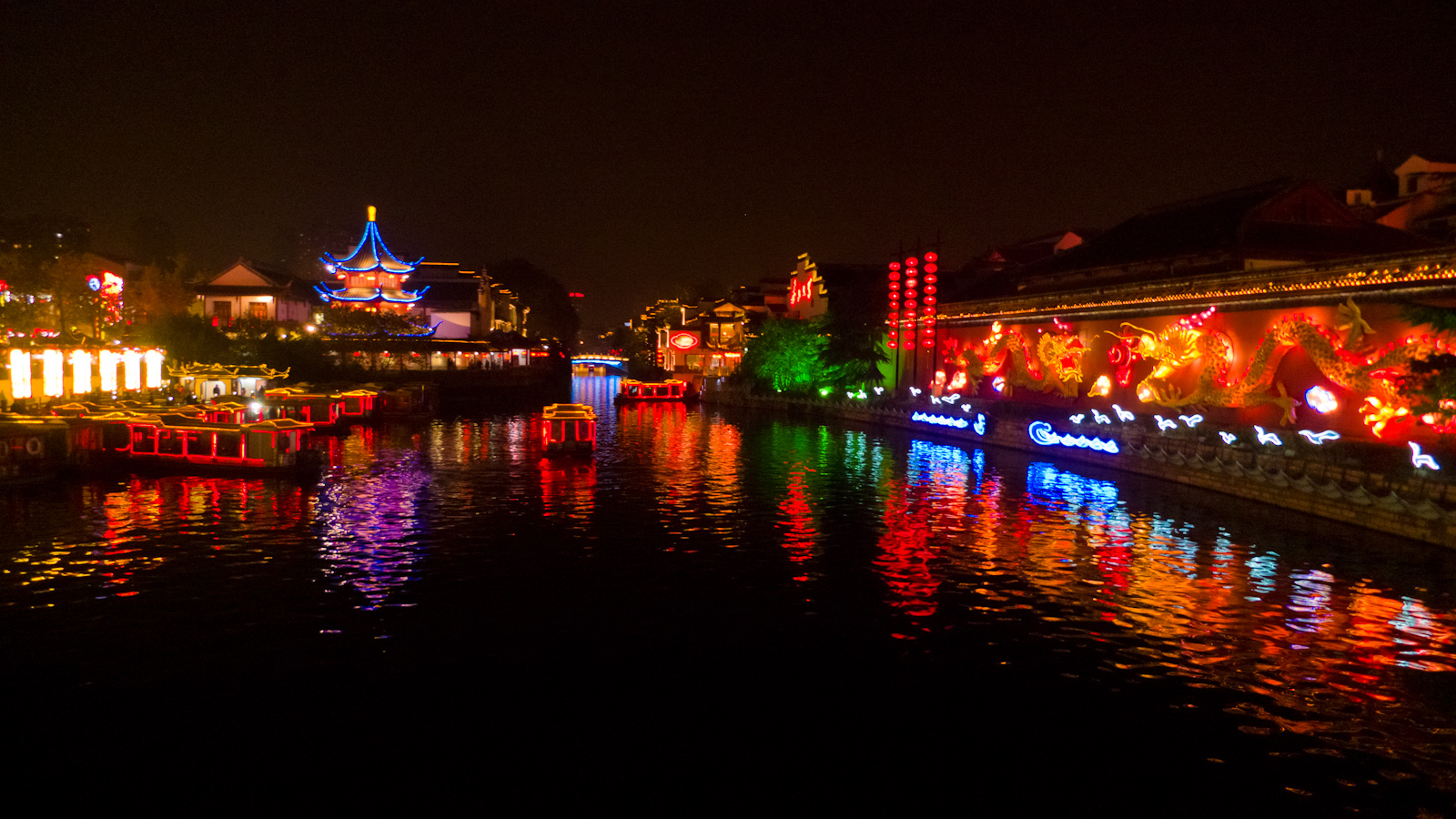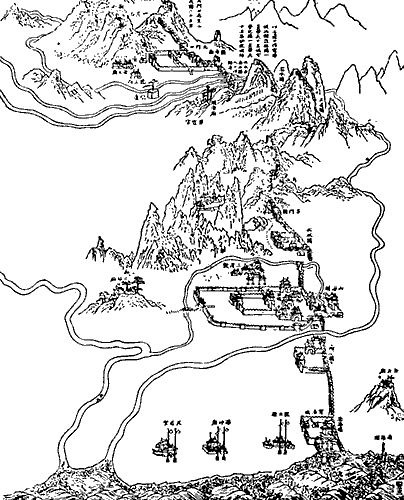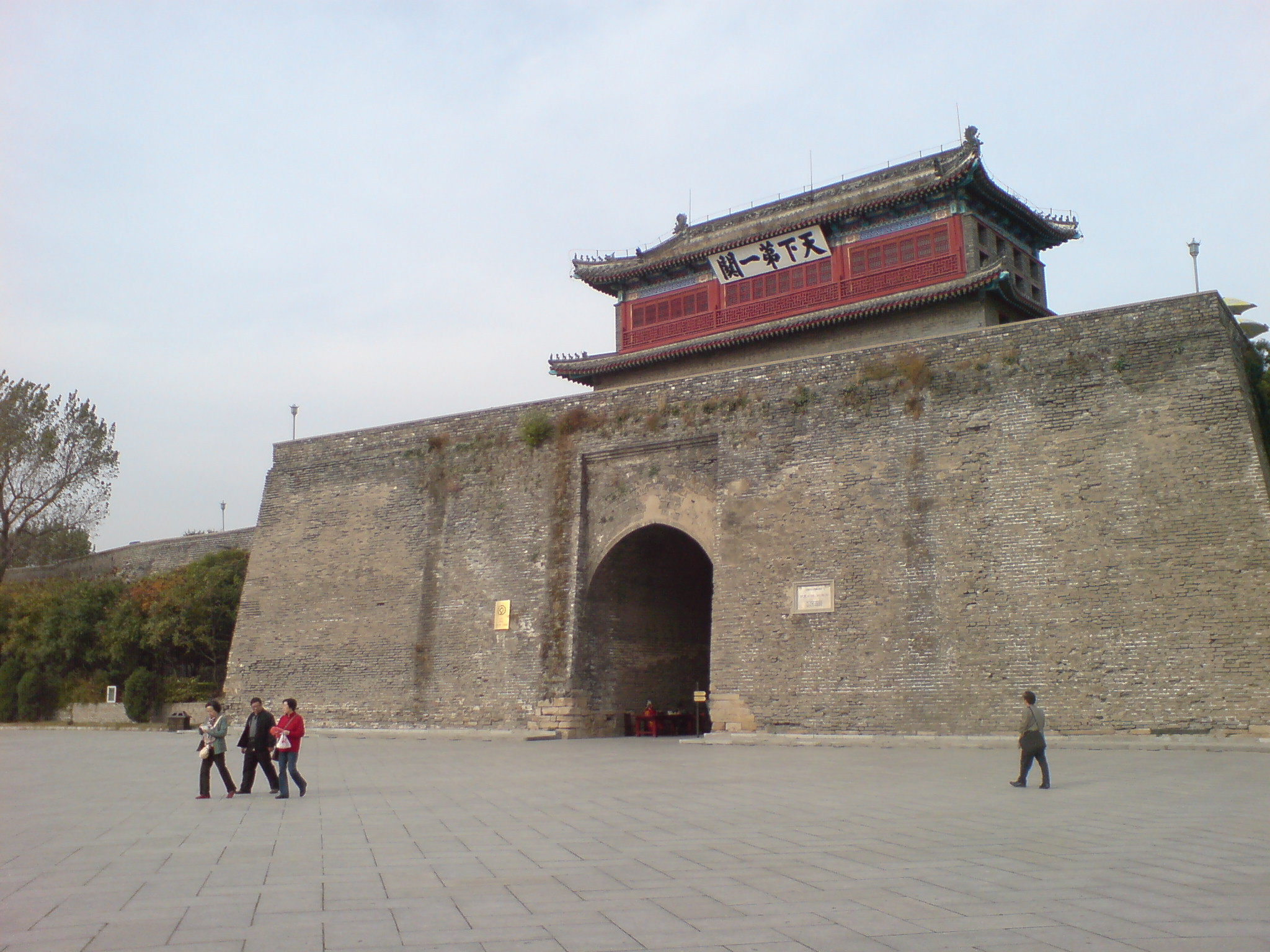|
Gong Dingzi
Gong Dingzi () (1615–1673) was a Chinese poet and politician. He was a famous author and Classical Chinese poet. He was also a government official serving under the Ming Chongzhen Emperor, the short-lived Dashun regime of peasant-rebel Li Zicheng, and then the Manchu-led Qing dynasty. Along with Wu Weiye and Qian Qianyi, Gong Dingzi was famous as one of the Three Masters of Jiangdong. Biography Passing the Imperial Civil Service Examinations for the Jiangnan Region as a top candidate in 1641, Gong Dingzi was posted to the capital city Beijing.Zhang, 72 On his way, he met his future bride, Gu Mei, who was one of the famous courtesans of the Qinhuai River district of Jiankang (modern Nanjing). By 1642, Gong was serving in the government administration in Beijing, where his impeachments of government ministers and criticism of imperial policies angered the Chongzhen Emperor, who had him imprisoned, in horrible circumstances. Released in early Spring, 1644, he was reunited with ... [...More Info...] [...Related Items...] OR: [Wikipedia] [Google] [Baidu] |
Classical Chinese Poetry
Classical Chinese poetry is traditional Chinese poetry written in Classical Chinese and typified by certain traditional forms, or modes; traditional genres; and connections with particular historical periods, such as the poetry of the Tang dynasty. The existence of classical Chinese poetry is documented at least as early as the publication of the ''Classic of Poetry'' (''Shijing''). Various combinations of forms and genres have developed over the ages. Many or most of these poetic forms were developed by the end of the Tang dynasty, in 907 CE. The use and development of Classical Chinese poetry actively continued up until the May Fourth Movement, in 1919, and is still developed even today. Poetry created during this period of more-or-less continuous development displays a great deal of diversity – categorized by both major historical periods and by dynastic periods (the traditional Chinese historical method). Another key aspect of Classical Chinese poetry is its intense int ... [...More Info...] [...Related Items...] OR: [Wikipedia] [Google] [Baidu] |
Qinhuai River
The Qinhuai River () is a tributary of the Yangtze with a total length of 110 km. It flows through central Nanjing and is called "Nanjing's mother river". It is the "life blood" of the city. The Qinhuai River is divided into inner and outer rivers. The scenic belt along the Qinhuai River meets with the Confucius Temple at the center and the river serving as a bond. The belt, featuring attractions such as Zhanyuan Garden, the Confucius Temple, Egret Islet, China Gate as well as the sailing boats in the river and pavilions and towers on the riverbanks, is a blend of historic sites, gardens, barges, streets, pavilions, towers, folk culture and customs. History The Qinhuai River used to be called Huai Water and was renamed Qinhuai to the legend that Qin Emperor Shihuang, the first emperor of the Qin dynasty (221–206 BC), ordered to introduce Huai Water to the city by excavating a mountain. It is a branch of the Yangtze River, running about 110 kilometres, a major watercours ... [...More Info...] [...Related Items...] OR: [Wikipedia] [Google] [Baidu] |
Politicians From Hefei
A politician is a person active in party politics, or a person holding or seeking an elected office in government. Politicians propose, support, reject and create laws that govern the land and by an extension of its people. Broadly speaking, a politician can be anyone who seeks to achieve political power in a government. Identity Politicians are people who are politically active, especially in party politics. Political positions range from local governments to state governments to federal governments to international governments. All ''government leaders'' are considered politicians. Media and rhetoric Politicians are known for their rhetoric, as in speeches or campaign advertisements. They are especially known for using common themes that allow them to develop their political positions in terms familiar to the voters. Politicians of necessity become expert users of the media. Politicians in the 19th century made heavy use of newspapers, magazines, and pamphlets, as well a ... [...More Info...] [...Related Items...] OR: [Wikipedia] [Google] [Baidu] |
Poets From Anhui
A poet is a person who studies and creates poetry. Poets may describe themselves as such or be described as such by others. A poet may simply be the creator ( thinker, songwriter, writer, or author) who creates (composes) poems (oral or written), or they may also perform their art to an audience. The work of a poet is essentially one of communication, expressing ideas either in a literal sense (such as communicating about a specific event or place) or metaphorically. Poets have existed since prehistory, in nearly all languages, and have produced works that vary greatly in different cultures and periods. Throughout each civilization and language, poets have used various styles that have changed over time, resulting in countless poets as diverse as the literature that (since the advent of writing systems) they have produced. History In Ancient Rome, professional poets were generally sponsored by patrons, wealthy supporters including nobility and military officials. For insta ... [...More Info...] [...Related Items...] OR: [Wikipedia] [Google] [Baidu] |
Ming Dynasty Poets
The Ming dynasty (), officially the Great Ming, was an imperial dynasty of China, ruling from 1368 to 1644 following the collapse of the Mongol-led Yuan dynasty. The Ming dynasty was the last orthodox dynasty of China ruled by the Han people, the majority ethnic group in China. Although the primary capital of Beijing fell in 1644 to a rebellion led by Li Zicheng (who established the short-lived Shun dynasty), numerous rump regimes ruled by remnants of the Ming imperial family—collectively called the Southern Ming—survived until 1662. The Ming dynasty's founder, the Hongwu Emperor (r. 1368–1398), attempted to create a society of self-sufficient rural communities ordered in a rigid, immobile system that would guarantee and support a permanent class of soldiers for his dynasty: the empire's standing army exceeded one million troops and the navy's dockyards in Nanjing were the largest in the world. He also took great care breaking the power of the court eunuchs and unr ... [...More Info...] [...Related Items...] OR: [Wikipedia] [Google] [Baidu] |
1673 Deaths
Events January–March * January 22 – Impostor Mary Carleton is hanged at Newgate Prison in London, for multiple thefts and returning from penal transportation. * February 10 – Molière's ''comédie-ballet'' '' The Imaginary Invalid'' premiers in Paris. During the fourth performance, on February 17, the playwright, playing the title rôle, collapses on stage, dying soon after. * March 29 – Test Act: Roman Catholics and others who refuse to receive the sacrament of the Church of England cannot vote, hold public office, preach, teach, attend the universities or assemble for meetings in England. On June 12, the king's Catholic brother, James, Duke of York, is forced to resign the office of Lord High Admiral because of the Act. April–June * April 27 – ''Cadmus et Hermione'', the first opera written by Jean-Baptiste Lully, premières at the Paris Opera in France. * May 17 – In America, trader Louis Joliet and Jesuit missionary-explo ... [...More Info...] [...Related Items...] OR: [Wikipedia] [Google] [Baidu] |
1615 Births
Events January–June * January 1 – The New Netherland Company is granted a three-year monopoly in North American trade, between the 40th and 45th parallels. * February – Sir Thomas Roe sets out to become the first ambassador from the court of the King of England to the Mughal Emperor Jahangir, sailing in the ''Lyon'' under the command of captain Christopher Newport. * March 10 – John Ogilvie, a Jesuit priest, is hanged and drawn at Glasgow Cross in Scotland for refusing to pledge allegiance to King James VI of Scotland; he will be canonised in 1976, becoming the only post-Reformation Scottish saint. * April 21 – The Wignacourt Aqueduct is inaugurated in Malta. * May 6 – The Peace of Tyrnau is signed between Matthias, Holy Roman Emperor, and Gábor Bethlen. * June 2 – The first Récollet missionaries arrive at Quebec City, from Rouen, France. * June 3 – The Eastern Army of Tokugawa Ieyasu and the Osaka Army of Toyotomi ... [...More Info...] [...Related Items...] OR: [Wikipedia] [Google] [Baidu] |
Zhu Yizun
Zhu Yizun (; 1629–1709) was an author and poet during the Qing dynasty. In his early literary career, Zhu was recognized for his talent and helped by Gong Dingzi.Zhang, 82 Zhu became the founder of the Zhexi school of ''ci'' poetry (song lyrics). Zhu Yizun was particularly influenced in this regard by the work of the Southern Song ''ci'' of Jiang Kui and Zhang Yan. Ming Sizong Chongzhen two years (1629) August 21 (October 7), Zhu Yizun was born in Jiaxing Jiaxing (), alternately romanized as Kashing, is a prefecture-level city in northern Zhejiang province, China. Lying on the Grand Canal of China, Jiaxing borders Hangzhou to the southwest, Huzhou to the west, Shanghai to the northeast, and the ... Biyi Fang Works Among other works, Zhu Yizun's ''Jingzhiju qinqu'' collection of ''ci'' (song lyric) poetry survives. The ''Jingzhiju qinqu'' describes his illicit love for his younger sister-in-law, Shouchang. It has been considered to be an important mile-stone in the devel ... [...More Info...] [...Related Items...] OR: [Wikipedia] [Google] [Baidu] |
Battle Of Shanhai Pass
The Battle of Shanhai Pass, fought on May 27, 1644 at Shanhai Pass at the eastern end of the Great Wall of China, Great Wall, was a decisive battle leading to the beginning of the Qing dynasty rule in China proper. There, the Qing prince-regent Dorgon allied with former Ming dynasty, Ming general Wu Sangui to defeat rebel leader Li Zicheng of the Shun dynasty, allowing Dorgon and the Qing army to rapidly conquer Beijing. Prelude Rise of the Manchus As the Ming dynasty#Decline and fall of the Ming dynasty, Ming dynasty declined, and the threat from northern enemies grew, Ming emperors saw the strategic value of Shanhai Pass and frequently garrisoned troops there, armies which sometimes reached up to 40,000 men. Under the rule of Hong Taiji (r. 1626–1643), the Qing were becoming more aggressive against the Ming. After an intermittent siege that lasted over ten years, Qing armies led by Jirgalang captured Battle of Songjin, Songshan and Jinzhou in early 1642. The garrison of Mi ... [...More Info...] [...Related Items...] OR: [Wikipedia] [Google] [Baidu] |
Ci (poetry)
CI or Ci may refer to: Business terminology * Customer intelligence, a discipline in marketing * Competitive intelligence * Corporate identity * Continual improvement * Confidential information Businesses and organisations Academia and education * California State University, Channel Islands * Channel Islands High School * Collegium Invisibile * Confucius Institute Religion * Josephites of Belgium, a Catholic congregation * Christian Identity * Christian Institute, a British charity which promotes Christian values Other businesses and organizations * Charity Intelligence Canada * China Airlines (IATA code) * Cigna health services (NYSE symbol) * Consumers International * Cycling Ireland * CI Records, a music record label * Cambria and Indiana Railroad * CANZUK International, organisation which promotes cooperation between Canada, Australia, New Zealand and the United Kingdom * Conservation International, an international environmental non-governmental organization * Communicat ... [...More Info...] [...Related Items...] OR: [Wikipedia] [Google] [Baidu] |
Shanhai Pass
Shanhai Pass or Shanhaiguan () is one of the major passes in the Great Wall of China, being the easternmost stronghold along the Ming Great Wall, and commands the narrowest choke point in the Liaoxi Corridor. It is located in Shanhaiguan District, Qinhuangdao, Hebei province, on the east bank of the Shi River between the Yan Mountains and the Liaodong Bay coast. In 1961, the pass was selected as the Major Historical and Cultural Site Protected at the National Level by the State Council of China, and it was listed as part of the Great Wall as a World Heritage Site by the UNESCO in 1987. The pass is a popular tourist destination at the eastern terminal point of the Ming dynasty Great Wall. The location where the wall meets the Bohai Sea is nicknamed "Old Dragon's Head" (老龙头). The pass lies nearly east of Beijing and is linked via the Jingshen Expressway that runs northeastward to Shenyang. Throughout Chinese history, the pass served as a frontline defensive outpost ag ... [...More Info...] [...Related Items...] OR: [Wikipedia] [Google] [Baidu] |
Nanjing
Nanjing (; , Mandarin pronunciation: ), alternately romanized as Nanking, is the capital of Jiangsu province of the People's Republic of China. It is a sub-provincial city, a megacity, and the second largest city in the East China region. The city has 11 districts, an administrative area of , and a total recorded population of 9,314,685 . Situated in the Yangtze River Delta region, Nanjing has a prominent place in Chinese history and culture, having served as the capital of various Chinese dynasties, kingdoms and republican governments dating from the 3rd century to 1949, and has thus long been a major center of culture, education, research, politics, economy, transport networks and tourism, being the home to one of the world's largest inland ports. The city is also one of the fifteen sub-provincial cities in the People's Republic of China's administrative structure, enjoying jurisdictional and economic autonomy only slightly less than that of a province. Nanjing has be ... [...More Info...] [...Related Items...] OR: [Wikipedia] [Google] [Baidu] |







